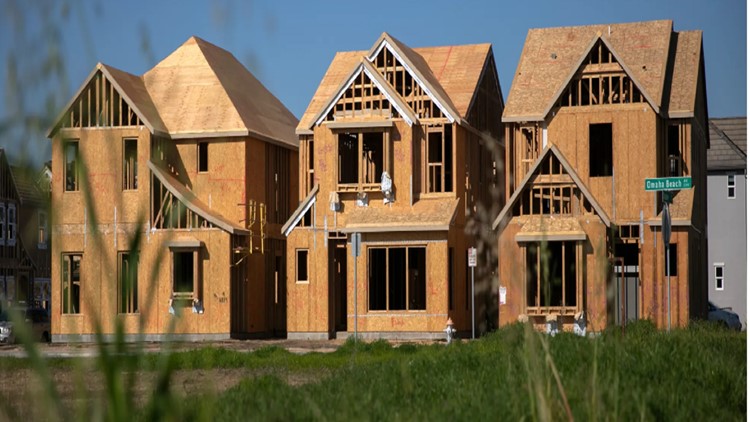CALIFORNIA, USA — This story was originally published by CalMatters.
Please subscribe to us on Apple Podcasts, Soundcloud and Stitcher.
California cities are deep in the process of planning for a lot of housing right now.
Every eight years, the state’s Housing and Community Development Department directs cities to develop plans to build the number of homes the state projects they’ll need to accommodate the growing population. This cycle, the department has asked them to identify spots for about 2.5 million new homes by 2030 – double their last goal.
The Regional Housing Needs Allocation process goes by region, and the spotlight is now on the Southern California Association of Governments, or SCAG.
Following an extended February deadline, the state found the vast majority of Southern California cities’ housing plans did not comply with state law.
For example, while experts widely lauded Los Angeles’ housing plan, which identifies realistic building sites and reverses historic development patterns, HCD said it didn’t go far enough to invest in lower-income neighborhoods or set out enough metrics for improved racial and ethnic integration in neighborhoods.
And for the first time this year, a non-compliant plan has a pretty serious penalty: Local governments will have to rezone their cities for the additional homes in less than a year, compared with the usual three years. If they don’t, they may lose access to state affordable housing funding.
In the latest episode of “Gimme Shelter: The California Housing Crisis Podcast,” CalMatters’ Manuela Tobias and the Los Angeles Times’ Liam Dillon explain why the state’s housing planning process has been ineffective and what the new penalties mean.
They interview Kome Ajise, executive director of SCAG, who argues the cities in his region want to do the right thing, but have been thrown on “a really fast-moving treadmill”.
“There is a lot being asked of the cities,” Ajise said. “What we’re saying is let’s give them a fighting chance to get that done. Now if there are some folks that don’t want to do it, it will be obvious. But the ones that want to do it are not even able to.”
The planning process recently came under fire from the state auditor’s office, which contrary to cities’ complaints of being asked to do too much, found the state was actually underestimating housing needs in three regions.
WATCH RELATED: New CA bill would impose 25% gain tax on house flippers who sell within 3 years (March 8, 2022)



